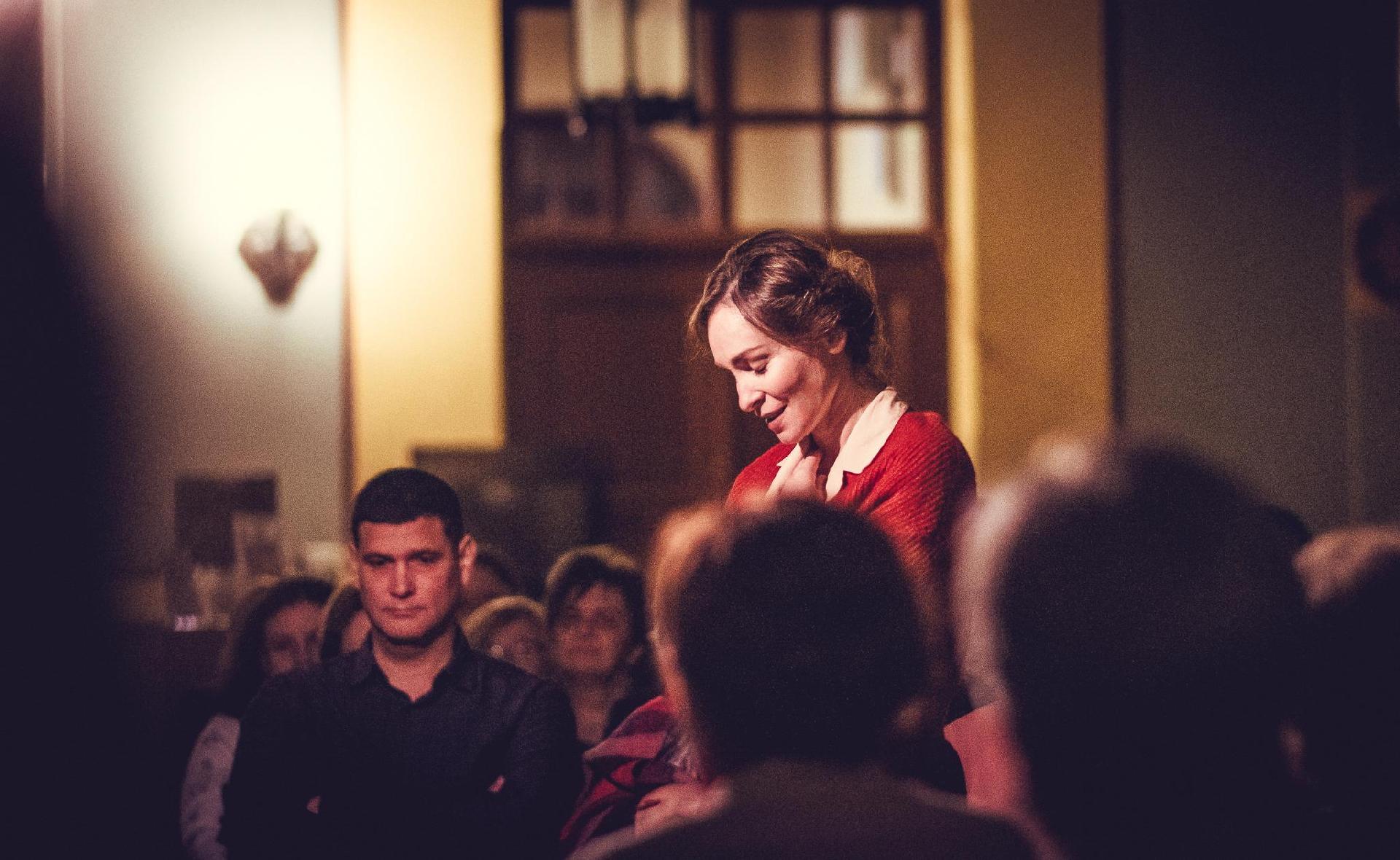Treurenberg 10, 1000 Brussels
Monodrama in Hungarian with English surtitles.
One of the greatest Hungarian literary sensations of recent years was the publication of the diary of Fanni Gyarmati, wife of the poet Miklós Radnóti, written between 1935 and 1946. Almost simultaneously with the release of the diary, actress Gabriella Hámori conceived the idea of creating a performance based on this captivating material. The FILC / Iván Fischer Apartment Theatre / premiered its own production on December 15, 2015, edited and directed by Tamás Seres. Since then, the piece has been performed to sold-out audiences over 200 times and has been featured at several festivals and venues.

Miklós Radnóti and Fanni Gyarmati
Győző Ferencz, literary historian and curator of the literary legacy: "Fanni Gyarmati said that she kept a diary in order to preserve what happened with Miklós Radnóti. But she wasn’t thinking of posterity, she wanted to make sure that if they ever needed some piece of information later in life, in their old age, they could look it up. The diary was originally intended for private use. This is evident in the early entries, where she factually records events as they occurred. But as time went on, more and more commentary and reflection appeared, though always succinctly. In the beginning, she wrote almost every day, in pencil, using shorthand, just before falling asleep, as memories came to her. This both affirms the authenticity of her honesty and reveals her way of thinking."

Scene from the performance - Gabriella Hámori as Fanni
Fanni Gyarmati (1912–2014), the wife and muse of Miklós Radnóti, began writing her diary in January 1935 at the age of twenty-three, just a few months before marrying the poet. The entries come to an end in September 1946, a few weeks after Radnóti - who had been murdered during his third forced labor service in 1944 - was finally laid to rest in Budapest. Kept over the course of twelve years, often on a daily basis, the diary is both a poignant historical document and a deeply personal tragedy.
Through its pages, the life and surroundings of the Radnóti couple come vividly to life: we get a glimpse into the everyday realities of progressive Hungarian literary and artistic circles in a country sliding deeper into fascism. We hear about frequent gatherings of close friends, travels to Paris, and the minutiae of daily life. Most strikingly, we gain insight into the inner world of a young, working woman who saw her principal role as supporting her husband’s poetic career by all possible means from behind the scenes.
Fanni Gyarmati deeply respected and adored her husband; she had unwavering faith in the poetic talent of Radnóti, whom she affectionately called “Mik.”
A harrowing and uniquely valuable text and a performance to match.
